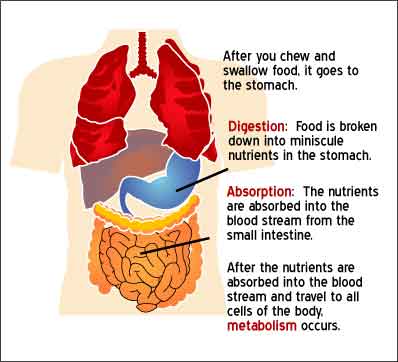As we consumed our food, the next process is digestion and distributing the nutrients where it is needed.
Consuming carbohydrates such as complex carbs are mainly digest and the body will use it as an energy source. Carbohydrates that high in sugar
and fat are considered simple carbs, generally
stored as fat. The chemical reaction of enzymes “amylase” helps
to digest carbs and absorb it for energy. Simple carbs such as refined sugar,
are mainly stored in the fat cells, which has no value for the body. Complex
carbs are useful to the metabolism and energy that the body demands. During the
digestion, protein releases an amino acid
that accommodate the growth and development of the muscles tissues. As the
enzymes speed up the process of the digestion of protein. It is necessary to
Include protein with three main meals to provide enough energy to keep your
metabolism running throughout the day. “When a person eats food proteins, whether from
cereals, vegetables, beef, fish, or cheese, the body must first alter them by
breaking them down into amino acids; only then can it rearrange them into specific
human body proteins.” Sizer, F. & Whitney, E. (2013). We have good, and bad fat in the food that we eat. Once
the fat is
digested it is carried through the
blood stream and is used to fuel the body. Again, too much consumption of fat will be
stored in the body instead of using it for energy. All of the
Macronutrients are good for our, too much
of it can do just as much harm. One thing that all three of the macronutrients
have in common is, it fuel the body to
sustain your daily activities.

Sizer, F. & Whitney, E. (2013). Nutrition: Concepts and Controversies (13th
ed.). Mason, OH: Cengage Learning.
No comments:
Post a Comment